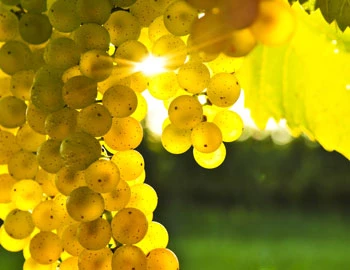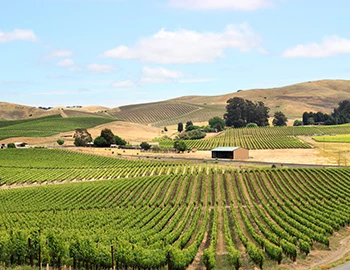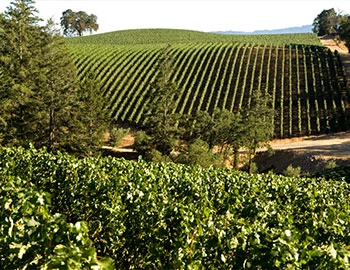
Chardonnay Starmont 2018
AVA St. Helena, Merryvale Vineyards, 375 ml

| Grape variety: | Chardonnay |
| Producer: | Merryvale Vineyards |
| Origin: | USA / California / Napa Valley |
Description
Deep golden yellow with sparkling green hues. Complex nose of wax, honey and white fruits. On palate a fine minerality exudes smoky, vanilla flavours. The wine is round, pleasantly fills the mouth and ends with freshness.
Attributes
| Origin: | USA / California / Napa Valley |
| Grape variety: | Chardonnay |
| Ripening potential: | 2 to 7 years |
| Drinking temperature: | 10 to 12 °C |
| Food Pairing: | Hot vegetable curries, Mushroom ragout, Risotto with ceps, Vitello tonnato, White cheese |
| Vinification: | fermentation of entire grape, fermentation in steel tank, fermentation in wooden barrel, biological acid degradation in barrel |
| Harvest: | hand-picking with simultaneous grape sel |
| Maturation: | in partly new and used barriques/ Pièces, bâtonnage |
| Maturation duration: | 10 months |
| Volume: | 13.5 % |
| Note: | Contains sulphites |
Chardonnay
King or beggar?
Hardly any variety of vine shows such a broad spectrum of quality as the Chardonnay. Its wines range from faceless neutrality to breath-taking class. It is an extremely low-maintenance vine, which explains why it is grown around the world – even in places where it probably should not be. The aromas of the Chardonnay variety are not very pronounced: a bit of green apple, a little hazelnut; in warmer latitudes, also melon and exotic fruits. The wines are often defined by maturing in casks. They develop more or less subtle notes of butter, toasted bread and vanilla. The grapes achieve their highest expression in their region of origin, Burgundy. Its heart beats in the Côte de Beaune: one might think of the plant growth of Meursault or Puligny-Montrachet. With their finesse and complexity, they can survive for decades. Chardonnay also achieves first class in some Blanc-de-Blancs champagnes. It additionally yields great wines in the Burgundian Chablis, and increasingly in Australia and Chile. A simple rule of thumb for pairing with food: When butter and cream are involved, you cannot go wrong with Chardonnay.

California
California: Lots of fruit and ripe tannins
Around 90 percent of the wine produced in the USA comes from California. The Napa Valley, situated roughly 100 kilometers north of San Francisco, is the most prominent wine region in the western hemisphere. California vintners first caused an international sensation with Chardonnay and Cabernet Sauvignon. Today, however, superior wines are also produced from Pinot Noir, Syrah and other varieties. California’s wine country shows more variety today than ever before.

USA
USA - Yes, they can!
The United States is the third-largest nation on the planet in terms of both land area (after Russia and Canada) and population (after China and India). Every conceivable climate zone can be found in the US, from hot deserts to arctic frost. Thanks to immigration from all over the world, the US is probably the most multicultural country on the planet. Thus it has the ideal conditions for producing internationally recognized wine.


